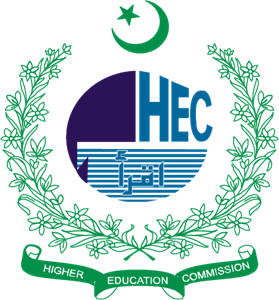Energy, Society and Sociodemographic Constraints Nexus: Development and Future Prospects
Keywords:
Renewable resources, strategic assessment, indigenous manufacturing and developmentAbstract
To overcome the challenges faced by the energy sector, policymakers need to prioritize the development of strategic policies that promote the adoption of waste-to-energy technologies, Tidal energy, solar power systems, and wind farms. These policies should emphasize the integration of renewable energy sources into the existing energy infrastructure, ensuring a more sustainable and resilient energy supply for urban areas. The study underscores the importance of collaboration between various stakeholders, including government bodies, private sector entities, and local communities. By fostering partnerships and creating incentives, it becomes possible to mobilize resources and expertise towards the implementation of renewable energy projects. This collaboration would not only address the energy crisis but also contribute to job creation and overall socioeconomic development. Proper utilization of renewable energy resources can resolve the dilemma of energy crises in the country. According to our results, solar stood first in the overall ranking followed by Tidal, waste-to-energy, and wind energies. Solar performed better in indigenous manufacturing and development, resource potential, and technological development. Pakistan has abundant green energy resources which could be utilized by the formation of a proper policy roadmap and mitigation of policy
pathways to overcome the hazardous dependence on fossil fuels for energy requirements. The implementation of policies adopted should be assured to achieve energy sustainability
References
Kim, K., Park, H., & Kim, H. (2017). Real options analysis for renewable energy investment decisions in developing cuntries. Renewable and Sustainable Energy Reviews, 75, 918–926.
Manju, S., & Sagar, N. (2017). Renewable energy integrated desalination: A sustainable solution to overcome future fresh-water scarcity in India. Renewable and Sustainable Energy Reviews, 73, 594–609.
Yearbook, P. E. (2020). Ministry of Energy (Petroleum Division) Hydrocarbon Development Institute of Pakistan.
Kamran, M., Fazal, M. R., & Mudassar, M. (2020). Towards empowerment of the renewable energy sector in Pakistan for sustainable energy evolution: SWOT analysis. Renewable Energy,146, 543–558. Retrieved from: https://doi.org/10.1016/j.renene.2019.06.165
Khan, A. U., Saboor, A., Ali, I., Malik, W. S., & Mahmood, K. (2015). Urbanization of multidimensional poverty: empirical evidences from Pakistan. Quality & Quantity, 50(1), 439– 469.
Irfan, M., Zhao, Z. Y., Ahmad, M., & Mukeshimana, M. (2019). Solar Energy Development in Pakistan: Barriers and Policy Recommendations. Sustainability, 11(4), 1206.
Abbasi, S. A., Harijan, K., Memon, Z. A., Shaikh, F., & Mirjat, N. H. (2021). Is coal power generation a sustainable solution for energy needs of Pakistan: a Delphi-SWOT paradigm?. International Journal of Energy Economics and Policy, 11(1), 308-317.
Shah, S. A. A., & Solangi, Y. A. (2019). A sustainable solution for electricity crisis in Pakistan: opportunities, barriers, and policy implications for 100% renewable energy. Environmental Science and Pollution Research, 26(29), 29687–29703.
Wang, Y., Xu, L., & Solangi, Y. A. (2020). Strategic renewable energy resources selection for Pakistan: Based on SWOT-Fuzzy AHP approach. Sustainable Cities and Society, 52, 101861.
Solangi, Y. A., Tan, Q., Mirjat, N. H., & Ali, S. (2019). Evaluating the strategies for sustainable energy planning in Pakistan: An integrated SWOT-AHP and Fuzzy-TOPSIS approach. Journal of Cleaner Production, 236, 117655.
Elavarasan, R. M. (2019). Comprehensive Review on India’s Growth in Renewable Energy Technologies in Comparison with Other Prominent Renewable Energy Based Countries. Journal of Solar Energy Engineering, 142(3).
Cayir Ervural, B., Zaim, S., Demirel, O. F., Aydin, Z., & Delen, D. (2018). An ANP and fuzzy TOPSIS- based SWOT analysis for Turkey’s energy planning. Renewable and Sustainable Energy Reviews, 82, 1538–1550.
Sen, S., & Ganguly, S. (2017). Opportunities, barriers and issues with renewable energy development – A discussion. Renewable and Sustainable Energy Reviews, 69, 1170–1181.
Vinod, Kumar, R., & Singh, S. (2018). Solar photovoltaic modeling and simulation: As a renewable energy solution. Energy Reports, 4, 701–712.
Irfan, M., Zhao, Z. Y., Panjwani, M. K., Mangi, F. H., Li, H., Jan, A., Ahmad, M., & Rehman, A. (2020). Assessing the energy dynamics of Pakistan: Prospects of biomass energy. Energy Reports, 6, 80–93.
Vallecha, H., & Bhola, P. (2019). Sustainability and replicability framework: Actor network theory based critical case analysis of renewable community energy projects in India. Renewable and Sustainable Energy Reviews, 108, 194–208.
Ozcan, B., & Ozturk, I. (2019). Renewable energy consumptioneconomic growth nexus in emerging countries: A bootstrap panel causality test. Renewable and Sustainable Energy Reviews, 104, 30–37.
Fan, S., Li, Z., Li, Z., & He, G. (2019). Evaluating and Increasing the Renewable Energy Share of Customers’ Electricity Consumption. IEEE Access, 7, 129200–129214.
Safar, K. M., Bux, M. R., Faria, U., & Pervez, S. (2021). Integrated model of municipal solid waste management for energy recovery in Pakistan. Energy, 219, 119632.
Vieru, D. (2020). Mathematical Modeling of Landfill Gas (MSW)—Production of Gas with Methane Gas Content from Landfills (MSW). Journal of Geoscience and Environment Protection, 08(12), 36–62.
Gunamantha, M. (2020). Assessment of the Potential of Energy Recovery from Organic Fraction of Municipal Solid Waste. The Journal of Solid Waste Technology and Management, 46(3), 160–167.
Downloads
Published
How to Cite
Issue
Section
Categories
License
Copyright (c) 2024 Leezna Saleem, Intikhab Ulfat (Author)

This work is licensed under a Creative Commons Attribution 4.0 International License.





